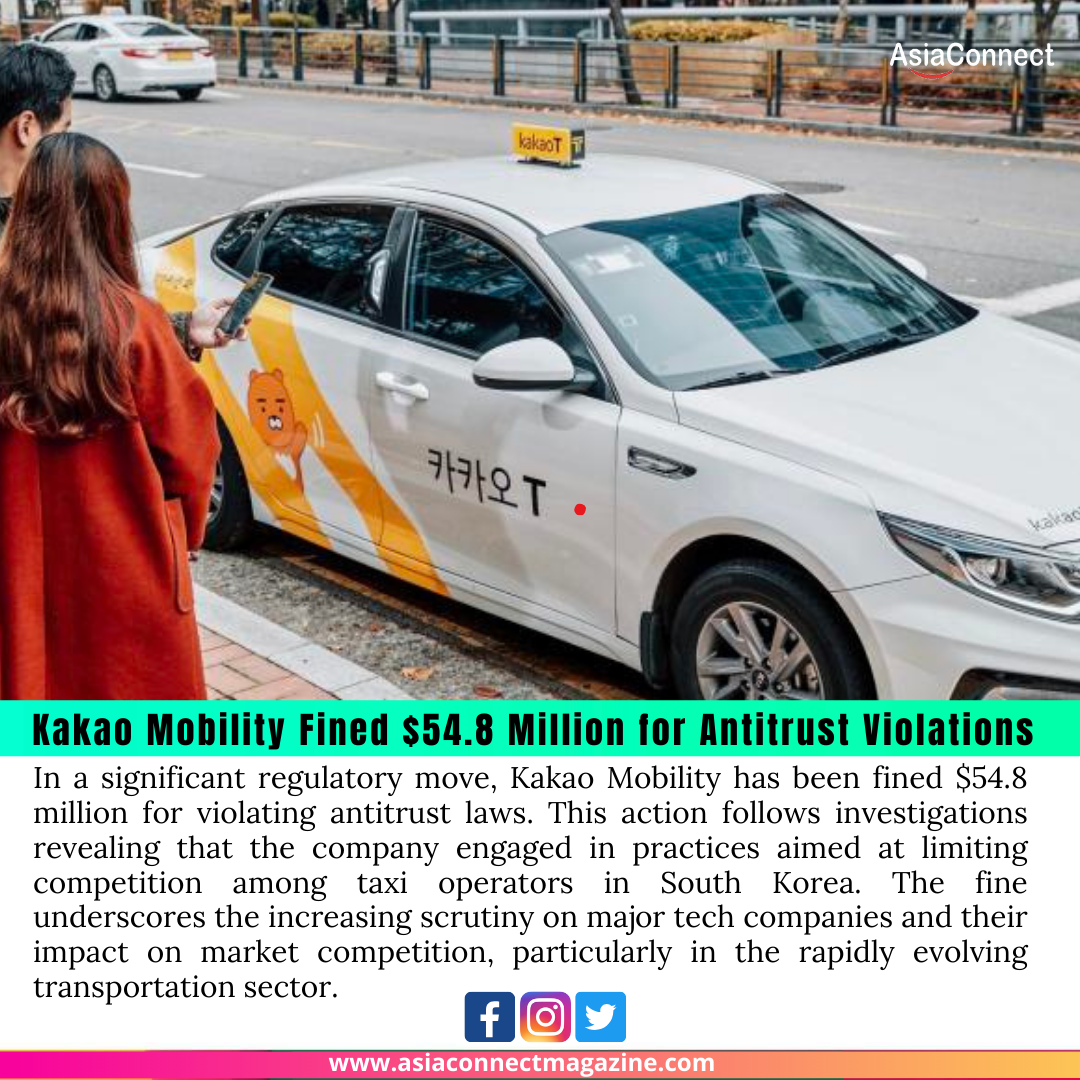In a significant regulatory move, Kakao Mobility has been fined $54.8 million for violating antitrust laws. This action follows investigations revealing that the company engaged in practices aimed at limiting competition among taxi operators in South Korea. The fine underscores the increasing scrutiny on major tech companies and their impact on market competition, particularly in the rapidly evolving transportation sector.
Background of the Violation
Kakao Mobility, a subsidiary of the South Korean tech giant Kakao Corp, has established itself as a leading player in the ride-hailing and mobility service market. With its popular Kakao Taxi app, the company has revolutionized how users request rides, making it a dominant force in the industry. However, this dominance has raised concerns regarding fair competition, particularly as Kakao Mobility was found to be involved in tactics that hindered rival taxi operators.
Reports indicate that Kakao Mobility attempted to implement policies that would restrict competing services, thereby consolidating its market power. Such practices included leveraging its platform to favor its own taxi services over those of competitors, creating barriers that made it difficult for other taxi operators to thrive. The actions were deemed anti-competitive and raised alarms among regulators who are increasingly vigilant about maintaining a level playing field in digital markets.
Regulatory Response
The fine imposed on Kakao Mobility is a direct response to these antitrust violations and reflects the South Korean government’s commitment to enforcing competition laws. The regulatory authority responsible for this action emphasized the importance of promoting fair competition, particularly in sectors that have a significant impact on consumers and local economies.
In addition to the financial penalty, regulators have called for structural changes within Kakao Mobility to ensure compliance with competition laws moving forward. This may involve adjustments to the company’s operational policies and practices to prevent any future abuses of market power. Such measures are crucial in fostering a competitive environment that encourages innovation and provides consumers with diverse choices.
Implications for the Industry
The antitrust fine against Kakao Mobility has broader implications for the tech and transportation sectors in South Korea. It sends a clear message to other companies that similar anti-competitive behaviors will not be tolerated. As the ride-hailing market continues to expand, regulators are likely to keep a close eye on how major players operate, ensuring they do not engage in practices that undermine competition.
Moreover, this regulatory action could influence how other tech companies approach their market strategies. As competition in the digital economy intensifies, companies may need to reevaluate their practices to align with regulatory expectations and avoid potential fines. This could lead to a shift in how companies interact with competitors and approach market growth.
Future Outlook
Moving forward, Kakao Mobility faces the challenge of rebuilding trust with regulators and consumers alike. The company will need to demonstrate a commitment to fair competition and transparency in its operations. Failure to do so could result in further regulatory scrutiny and additional penalties.
As for the ride-hailing industry, this incident highlights the ongoing tension between innovation and regulation. Striking the right balance will be essential for fostering a healthy competitive landscape that benefits consumers while allowing companies to thrive.
In conclusion, the $54.8 million fine against Kakao Mobility serves as a critical reminder of the importance of maintaining competitive practices in the tech industry. As regulators continue to monitor market behaviors, companies must prioritize fair competition to ensure sustainable growth and consumer satisfaction.





